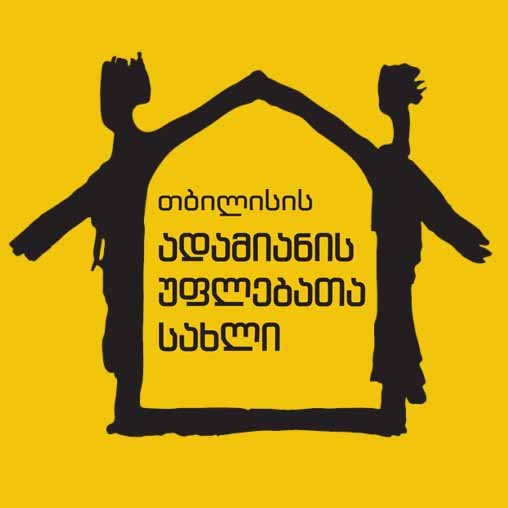News
Statement on the Parliamentary Elections in Georgia - Statement of Georgia’s Human Rights Center and the Norwegian Helsinki Committee

28.10.2024
In areas visited by our observers, the Parliamentary Elections in Georgia 26 October failed to meet fundamental standards for free and fair elections. Based on observations in minority-populated areas of three regions of Georgia and in the villages alongside the ABL in Shida Kartli region, systematic pressure on voters outside and inside polling stations, severely compromised the secrecy of the vote and voters’ ability to express their opinion freely.
According to the election code of Georgia, it is prohibited to physically hinder the movement of a voter approaching the polls within 100 meters from the polling station; further, no gatherings and registration of voters are allowed on election day within 100 meters of the polling station. These provisions were systematically violated in the areas observed by us and may have influenced the elections result.
The widespread presence of intimidating groups of unaccredited persons outside the polling stations who sometimes functioned as organizers, directing voters, driving them, calling them and instructing them, and sometimes acted as unofficial guards, compromised the secrecy of the vote and the voters’ ability to express their opinion freely.
In many instances, the people outside seemed to work together with GD observers or commission members inside the polling stations. While there were police in the area, neither they nor the PSCs acted to disperse the groups of unofficial guards and organizers.
Background
Georgia’s Human Rights Center (HRC) and Norwegian Helsinki Committee (NHC) were both accredited as election observation organizations for the 26 October parliamentary elections by the Central Election Commission (CEC). Both organizations have a long history of observing elections in the OSCE area and have cooperated on observing elections in Georgia since 2008. On election day, HRC deployed 20 and NHC 4 observers.
HRC/NHC focused in particular on rural minority areas, some of which did not have the new electronic voting system, and instead employed the old system of manual registration of voters and tabulation of votes. On election day, we visited regions of Samtskhe-Javakheti, Kakheti, Kvemo Kartli and Shida Kartli, including in villages with ethnic minority populations in Poka, Sagarejo, Gardabani and Marneuli municipalities and in the conflict-affected villages alongside the administrative boundary line with Russian-occupied South Ossetia (ABL) in Gori municipality.
While this statement refers to findings on election day, they cannot be viewed separately from the widely reported problems during the pre-election period. Misuse of administrative and financial resources by the ruling party, changes to the composition and regulation of election commissions, including the Central Election Commission, campaigns against the opposition political parties and hostile environment created against media, nongovernmental and election observation organizations significantly influenced the election process, including on election day.
Election Day Observations
In the polling stations of Marneuli, Sagarejo, Tsalka and Gardabani municipalities, the HRC/NHC monitors observed several instances when voters took photos of bulletins in the election booths that is prohibited by the law. Based on the remarks of the HRC observers, the chairman of the election commission in the polling station in Gardabani asked the voters to delete the illegally taken photos. In the polling stations in Marneuli municipality the HRC observer lodged complaints about this violation. It was also observed in PS 34 of Sagarejo municipality. There were several instances were two persons entered the election booths together, or when commission members watched the booths, in a manner that compromised the secrecy of the vote.
In Marneuli, voters were intimidated in PS # 12 of district # 22. People mobilized in the vicinities of the polling station did not allow a citizen to participate in the elections and prohibited him to enter the precinct. In one polling station in Sadakhlo village (Marneuli district) unaccredited persons inside the polling station created a chaotic environment where there were no proper voter identification and spraying of ink on voters, as prescribed by law. When observers asked the election commission to correct the violations, they were threatened with being kicked out from the station. NHC observers witnessed that unaccredited persons handed voters tiny pieces of paper with something handwritten on it before they entered the polling station to vote, in violation of the law.
Polling stations # 36, 37 and 38 in the village of Lambalo in Sagarejo municipality are opened in different sites of the public school. Mobilization of the members of the Georgian Dream (GD) was observed in the yard of the public school. In most cases, they already had the ID cards of the voters, brought them by cars, talked with them outside the precinct, and then returned ID cards and allowed them to enter the polling station. In #37 and #38 accredited observers from GD were guiding the voters and directing the work of the PSC.
In PS 39 in Tulari in Sagarejo municipality, observers were stopped and checked by an unaccredited person when trying to enter. In the village of Duzagrama in Sagarejo municipality, because the mobile ballot box was damaged, the observer lodged a complaint and requested to annul the ballot papers dropped in the mobile box. While there were unaccredited men, usually in groups, in front of all polling stations in the Azeri villages observed in Sagarejo, there were none in the Georgian populated villages of the same district, suggesting a pattern of more direct intimidation of the ethnic minority areas. Observers heard several independent reports that passports and ID documents had been collected from voters in Sagarejo, and that voters had been paid to vote, but we did not see this first hand.
In the village of Amlevi-Orbeti, District #26, PS #38, a GD observer was behaving as a commission member, touching the ballots and other things at the commission’s table. In Poka district 41, PS #32 unaccredited persons harassed the interpreter who assisted the NHC observer. In Tsalka, district 25, PS #1, the commission members were “helping” voters to find GD in the list, ballots in the mobile box taken for home voting were without signatures, the election committee members were sometimes able to see who a person voted for when assisting them with the machine. Several people were taking photo of their ballot before leaving the booth and proceeding to the machine.
In Kvemo Kartli region, HRC observers identified several facts of influence on the will of the voters after they entered the booth, when unauthorized people accompanied them in the booth and dictated whom to vote for.
According to the election code of Georgia, it is prohibited to physically hinder the movement of a voter approaching the polls within 100 meters from the polling station, further, no gatherings and registration of voters are allowed on election day within 100 meters of the polling station. These provisions were systematically violated in the areas observed by us.
The widespread presence of intimidating groups of unaccredited persons outside the polling stations who sometimes functioned as organizers, directing voters, driving them, calling them and instructing them, and sometimes acted as unofficial guards, compromised the secrecy of the vote and the voters’ ability to express their opinion freely.
In many instances, the unaccredited people outside seemed to work together with GD observers or commission members inside the polling stations. While there were police in the area, neither they nor the PSCs acted to disperse the groups of unofficial guards and organizers outside the polling stations. During the voting, HRC monitors lodged 12 complaints and made 26 notes in the PS logbooks.
Contact persons:
Tamar Tordinava 599 87 78 10
Aage Borchgrevink +47 907 51 150




